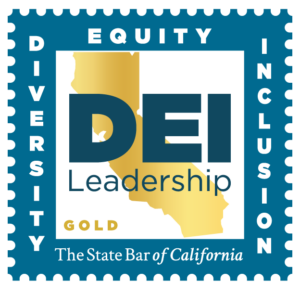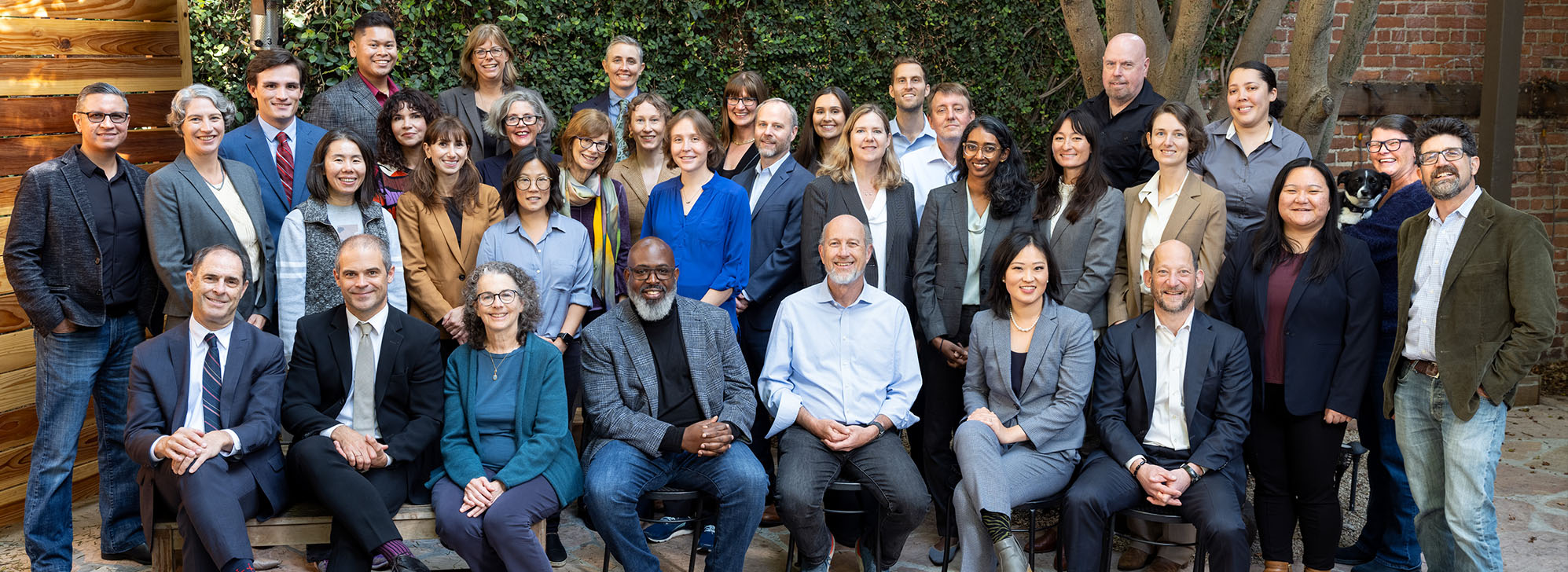
Diversity, Equity & Inclusion
Shute, Mihaly & Weinberger is committed to fostering diversity, equity, and inclusion (DEI) in our workplace and in the work that we do.
 For us, diversity means the differences in people’s experiences and identities—including their race, ethnicity, gender, sexual orientation, socioeconomic status, disability, and religion—that result in varied perspectives and knowledge. Inclusion means nurturing a sense of belonging and a culture of respect within our firm, the legal profession, and our communities, especially by listening to and amplifying voices that have been traditionally ignored or silenced, and supporting people in achieving their potential. Equity means the redistribution of opportunities, resources, and power to promote justice.
For us, diversity means the differences in people’s experiences and identities—including their race, ethnicity, gender, sexual orientation, socioeconomic status, disability, and religion—that result in varied perspectives and knowledge. Inclusion means nurturing a sense of belonging and a culture of respect within our firm, the legal profession, and our communities, especially by listening to and amplifying voices that have been traditionally ignored or silenced, and supporting people in achieving their potential. Equity means the redistribution of opportunities, resources, and power to promote justice.
We acknowledge that the practice of law, the environmental movement, government actions, and land use planning contribute to structural inequities and the oppression of people of color and marginalized communities. We believe we have a moral obligation to fight systemic racism, as well as homophobia, transphobia, sexism, and other forms of discrimination and exclusion, and to work toward equity in our workplace and our communities.
We also believe that creating a more diverse and inclusive workplace allows us to better serve our clients and their communities. Diversity and inclusion not only enhance quality of life within the workplace, but also the quality of our work. Diverse teams make decisions more critically and with more successful outcomes. And being inclusive of a wide range of unique perspectives fosters more creative and effective problem-solving, which directly contributes to achieving our clients’ objectives.
Shute, Mihaly & Weinberger remains committed to advancing these values and goals, learning and reflection, and fostering needed change within our firm and our communities. We recognize that this work must be ongoing, and will never be complete. Click on the headings below to see what actions we have taken and are taking:
Advancing DEI in the work that we do
- Anti-racism and social justice screening for new matters: When evaluating new matters, we require disclosure of potential impacts to vulnerable communities. Our new matter screening process also encourages reflection and fosters dialogue on whether each new potential client or work matter may have positive or negative implications for the firm’s social justice and anti-racism goals.
- Increasing our social and environmental justice work, including through pro bono support: For many years, SMW has worked with clients and on matters to address social and environmental justice; you can read more about this practice area here. Our pro bono policy prioritizes matters that attempt to dismantle structural racism or protect human rights, with a specific focus on environmental justice. The firm also established industry-leading pro bono hours targets and created systems to help ensure we meet those goals.
- Increasing charitable giving to environmental and social justice organizations: We have revised our charitable giving polices to better direct funding to organizations engaged in environmental justice and anti-racism work. We have also doubled our overall charitable giving to help advance these aims. You can learn more here about the organizations to which we made donations last year.
Advancing DEI in our workplace
- Recruiting and hiring: Our recruiting and hiring procedures incorporate best practices for interrupting bias. We use a structured interview process, where we ask the same questions of all candidates, conduct a blind review of written work product, and specifically evaluate candidates based on metrics tied more to job performance than prestige or “fit.” We have also increased outreach to law schools with more diverse student bodies, connected directly with law student affinity groups to find candidates, and clarified our recruitment and hiring materials to encourage students with a broader range of professional interests (e.g., general public interest) to apply.
- Mentoring and professional development: We have established formal and encourage informal practices to better support inclusion and engagement in firm culture and professional development. Our Mentoring Committee, which manages the Attorney Mentoring Program, includes attorneys at all levels of seniority. This committee regularly evaluates and, when necessary, restructures mentoring assignments and duties. Additionally, the firm is working to expand its current mentoring practices for staff into a more formal program.
- Firmwide educational events: The firm organizes periodic presentations and discussions for all firm members that examine the intersections between systemic inequity, the law, land use, environmental issues, and how we do our work. Examples include:
- A presentation on the firm’s Tribal Law practice, focusing on cultural resource protection and the Land Back movement, identifying racist terms in legal discourse, and describing America’s history of racism and erasure toward Native peoples.
- A discussion of cultural appropriation and the legal profession, and what it means to be an effective advocate for marginalized communities and communities of color.
- Trainings on microaggressions in the workplace and how to be more mindful of those with varied backgrounds and experiences.
- Presentations about best practices for successful collaboration in our work, covering topics such as providing constructive feedback, communicating differences in work style, and delegating projects effectively between team members.
- Women-owned firm: We are proud to be one of the largest law firms in California in which a majority of the partnership is owned by women.
- Compensation: Since its inception, the firm has paid its attorneys, including partners, primarily based on years of service to the firm. Similarly, the firm pays its staff primarily based on survey data tied to years of experience. This structure supports a cooperative and inclusive working environment, promotes transparency, and helps to eliminate bias in compensation.
- Reflection on and assessment of firm culture and practices: In recent years, we have worked with an outside consultant to assess our firm’s culture and practices and to develop a long-term DEI action plan with established structures and practices to better navigate the complexities that accompany diverse organizations. We continue to implement, evaluate, and update this action plan as we better understand ways our firm can create a more inclusive and supportive environment where people with a range of backgrounds can thrive.
